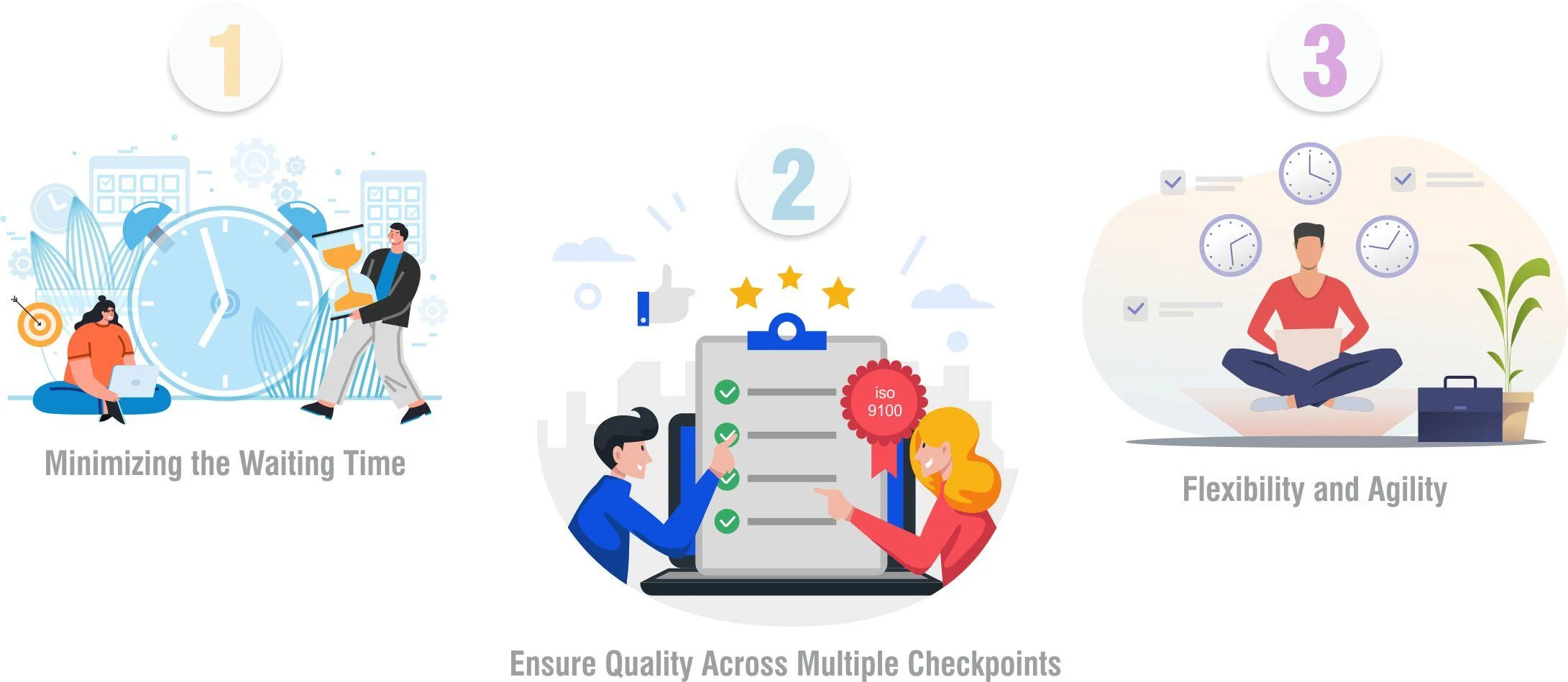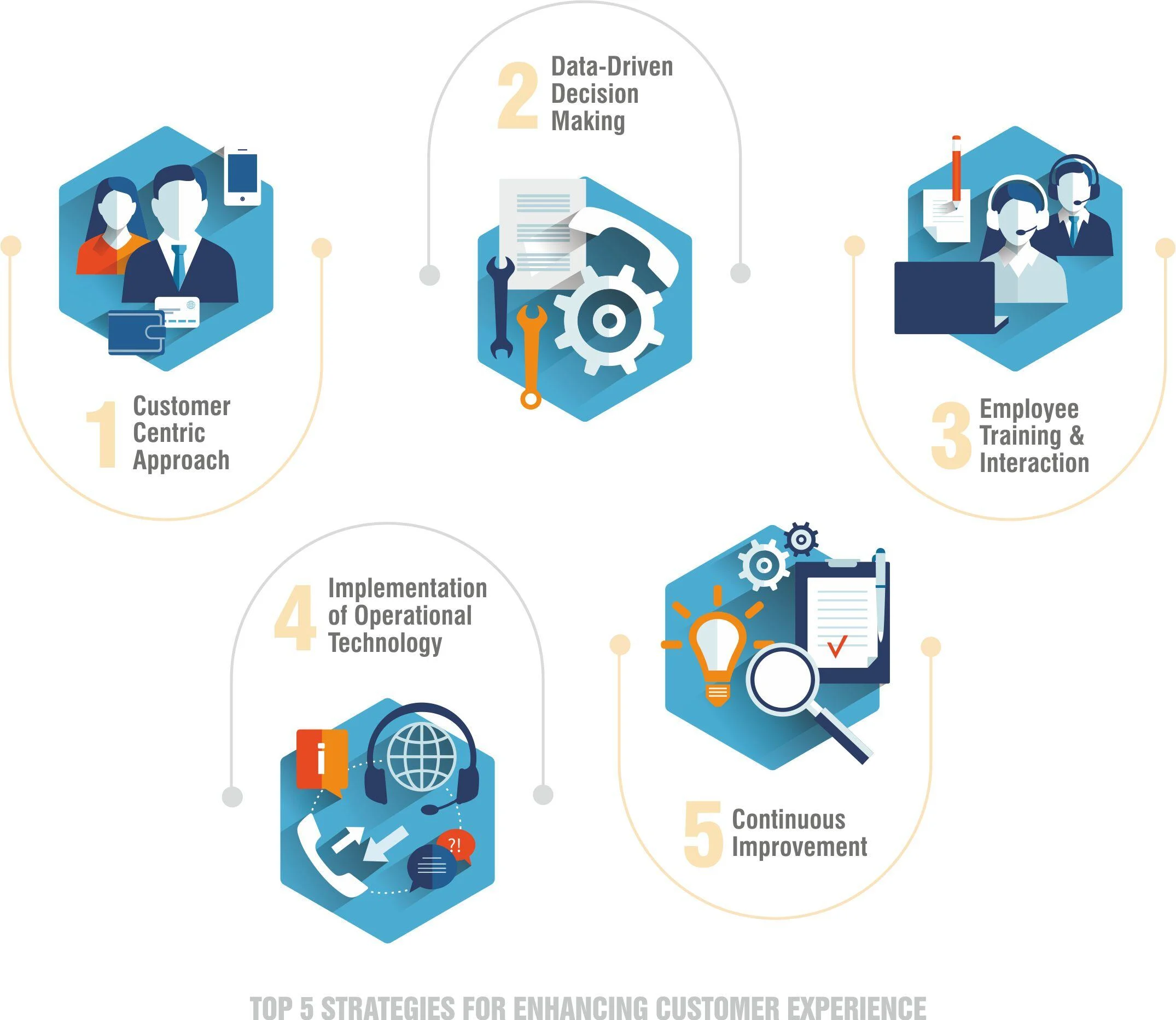What is Operational Excellence?
Operational excellence is a strategy used by companies— often guided by operational excellence consulting firms and experienced business operations consulting firm experts — to execute operational efficiency and effectiveness through the implementation of a high-quality management system to manage production, delivery of products and services, and reduce overhead expenses. By eliminating inefficient production steps, and reducing transaction errors, and other variable costs, we can optimize business processes across the area of operational functionality with the help of professional operations consulting services. Many businesses also collaborate with operations consulting firms to identify inefficiencies and adopt sustainable frameworks for long-term results.
How Operational Excellence Makes Customers Smile?
Operational excellence directly impacts customer satisfaction. Companies that focus on continuous improvement and efficiency often deliver higher-quality services, faster responses, and stronger trust among customers. Here’s how:
- Minimizing the Waiting Time: Businesses can express the effective operation as the reduction of time-taking processes and points of congestion to enhance the quicker provision of services. This is a key focus for operations consulting firms, as it increases customer satisfaction and assures prospects of reliability. Lean concepts, often applied by cost reduction consultants, can assess, eliminate, or reduce waste in the activities that you undertake so that each step adds value to the customer.
- Ensure Quality Across Multiple Checkpoints: Ensuring quality across different channels means that the products and services should be delivered on time and that the organization is supposed to meet a set quality standard. This is where operational excellence consulting firms implement robust management tools to reduce defects, maintain standards, and identify improvement areas — all of which enhance customer trust.
- Flexibility and Agility: Agility and flexibility facilitate rapid and purposeful responses to customer needs and the implementation of internal changes in any business environment. Leading business operations consulting firm advisors promote open cultures that enable organizations to stay competitive in fast-changing markets. In some cases, agility also involves incorporating supply chain management consulting solutions to adapt to evolving global demands.
Top 5 Strategies for Enhancing Customer Experience
The well-framed policies, procedures, plans, and goals that can help increase customer satisfaction rates through operational excellence by using these 5 key strategies provide a better customer experience.
1. Customer-Centric Approach: Often championed by operations consulting firms, always considers the customer’s interests first when organizing business flowcharts. Implementing different strategies to improve your customer experience and finding where they are facing problems with your product and service and where processes can make the most difference. Using tools from operations consulting services, companies can pinpoint problem areas and improve experiences across the entire customer journey.
2. Data-Driven Decision Making: To facilitate making data-driven decisions to fully understand the customer’s needs and wants, data analytics must be used to gain more information about the client. Get to use this data in making strategies to shape your operations and enhance them by using credible information. Implementing CRM solution with supply chain management consulting insights allows organizations to align operational planning with market demand.
3. Employee Training & Interaction: Employees are the front line of customer experience. Operational excellence consulting firms often provide training programs to ensure staff have the skills needed to deliver exceptional service.
4. Implementation of Operational Technology: An optimized and well-structured management system that can process everything regarding sustainability and output. It should be pursued alongside improving customer satisfaction through leveraging technology. Sophisticated technologies, such as the utilization of automated systems like AI or machine learning, can be a great help in enhancing the customer experience as well as providing uniqueness to the entire product experience— implemented by business operations consulting firm professionals — can greatly enhance efficiency and customer satisfaction.
5. Continuous Improvement: Continuous improvement promotes effectiveness by establishing clear communication and transparent culture and by encouraging an open- mindedness for feedback and the generation of innovative ideas. Cost reduction consultants often integrate continuous improvement frameworks to achieve long-term gains.
How to Measure Customer Experience?
To bridge the customer experience gap between the company and a customer, it is only possible when an organization keeps monitoring its performance graph by using major key performance indicators (KPIs). Here are some key performance indicators to measure operational excellence consulting to enhance the customer experience:
- Net Promoter Score (NPS): A key metric that is used to determine customers’ trust and faith in your brand and their likelihood of endorsing that brand to others.
- Customer Satisfaction Score (CSAT): This is a unique assessment mechanism that helps companies know customer perception through feedback and surveys to assess their products or services to see whether the customer is satisfied or not.
- First Response Time (FRT): This is the duration the company uses to get back to the customer and attend to their query or complaint.
- Order Processing Completion Time: The time it takes to complete the processing and fulfill orders before delivering them to the customer.
Remember, customer satisfaction is not only your responsibility; it’s also your duty to comply with the customer’s needs and wants. So, the importance of operation excellence is prominent in enhancing the customer experience because it requires dedication and continuous efforts.
Strong KPI monitoring — supported by operations consulting services — helps businesses stay aligned with customer needs. In addition, crisis management consultant expertise can ensure that customer satisfaction is maintained even during unexpected disruptions.
Note: CCO Consulting cannot and does not provide legal advice. It’s important to consult with qualified counsel before adopting any new policies. It’s also your responsibility to determine whether a legal review of the work product is necessary before implementation.
FAQs on Operational Excellence and Customer Experience
1) How does operational excellence consulting improve customer satisfaction?
Operational excellence consulting focuses on improving efficiency, reducing waste, and enhancing quality. By streamlining internal processes, companies can deliver faster service, better products, and more consistent results—creating a seamless customer experience that drives loyalty and satisfaction.
2) Why should companies invest in operations consulting firms for customer experience optimization?
Partnering with operations consulting firms ensures businesses get expert insights on process reengineering, technology adoption, and workflow optimization. These improvements directly translate into smoother operations, reduced costs, and a more customer-centric service model.
3) How can cost reduction consultants enhance operational excellence strategies?
Cost reduction consultants identify inefficiencies and eliminate waste in production and administrative processes. Their expertise helps optimize resources and improve profit margins while maintaining quality and responsiveness—key drivers of both operational excellence and customer satisfaction.
4) What is the connection between supply chain management consulting and customer experience?
Supply chain management consulting ensures that production, logistics, and delivery systems align perfectly with market demand. A robust and agile supply chain minimizes delays, reduces costs, and guarantees customers receive products and services on time—strengthening brand reliability.



